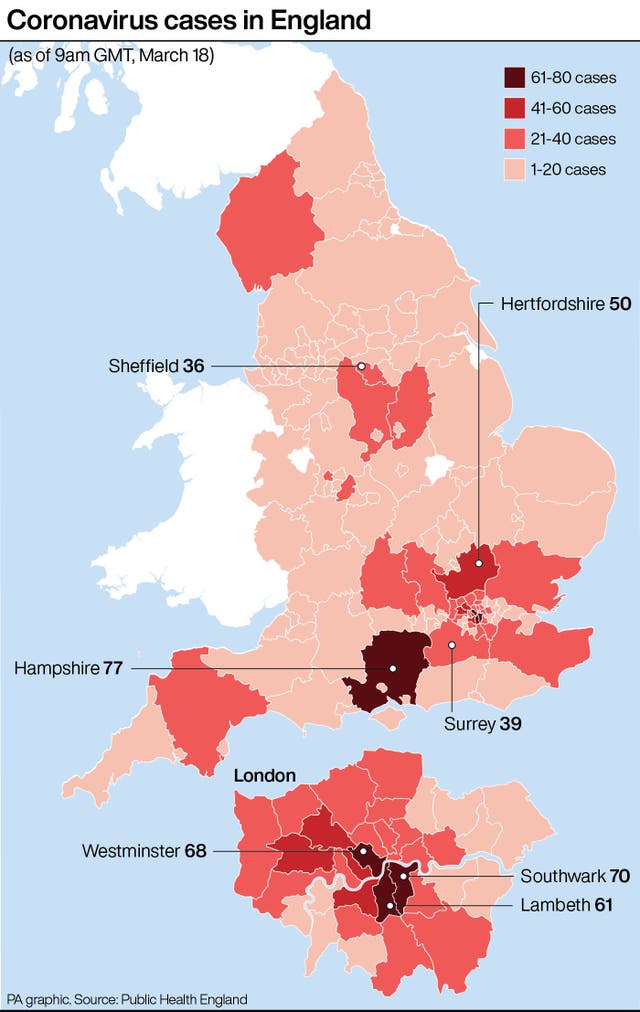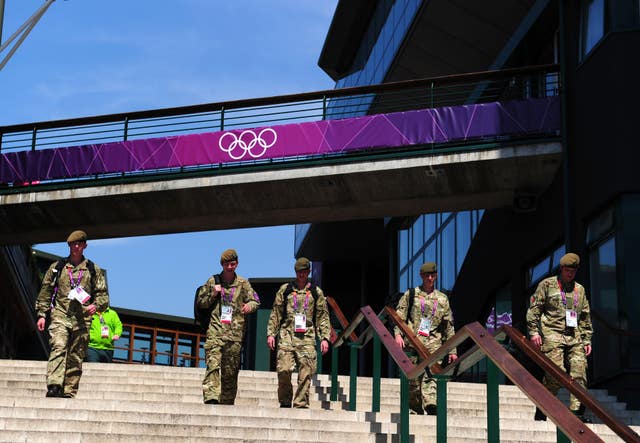
Deploying military personnel to support public services is “risky”, a defence expert has warned, as the Government announced it intends to bring soldiers in Iraq back to the UK to assist with the coronavirus pandemic.
Elizabeth Braw, senior research fellow at the Royal United Services Institute (RUSI), said the tasks which troops would be expected to carry out were “not their speciality” and “essentially a distraction” from their normal duties.
The Government announced on Wednesday that up to 20,000 service personnel will form part of a Covid Support Force, as the number of deaths in the UK rose to 104.
“With something like this, it is not exactly clear how the armed forces can support and more importantly we have to consider that they may be needed elsewhere,” Ms Braw told the PA news agency.
“We can’t take for granted that we will only have a virus outbreak. What if there is another contingency, and I think that is the danger in relying on the armed forces.
“To always assume that they will always be available to help with these kinds of duties that are not their speciality and are essentially a distraction from their speciality is risky.”
The Ministry of Defence (MoD) said it was “fully engaged” with all levels of Government to work out how the military can provide a support role over the coming weeks and months.
Around 10,000 troops are held at “higher readiness” in case of a civil emergency and this figure will be doubled in the effort to support public services amid the coronavirus outbreak.
The department announced on Thursday that it would redeploy troops to the UK after pausing a training mission in Iraq for 60 days due to the global pandemic.
The UK will retain “key military personnel throughout the country” to ensure the interests of the Iraqi Government and Global Coalition are appropriately supported.
Defence Secretary Ben Wallace said: “In recent months the tempo of training has significantly declined, which means that I am in a position to bring back the current training unit to the UK.”

But Ms Braw, who heads the RUSI Modern Deterrence Programme, suggested that in future “ordinary civilians” – including teenagers – should be trained to offer support in times of crisis.
“It’s good that (the armed forces) can help this time, but it does raise the question of what we should do differently – this time it is too late, but for future contingencies,” she said.
“Maybe the answer is to have trained civilians who can step in and help the blue light services and other government agencies when there is a crisis so we don’t always have to turn to the armed forces.”
Military personnel have been enlisted to assist in previous national emergencies, most recently during widespread flooding caused by storms Ciara and Dennis.

During the 2012 London Olympics, some 13,500 troops were called to provide logistical support and venue security.
As part of the Covid Support Force plans, 150 military personnel will be trained to drive oxygen tankers for the NHS, as well as providing general public support, the MoD said.
Armed forces minister James Heappey downplayed the severity of troops’ involvement, after a video appearing to show several vehicles transporting tanks along a motorway raised speculation online.
“This is when social media is at its most ridiculous,” he wrote on Twitter.
“We’ve got plans for offering all sorts of support during the Coronavirus outbreak. But absolutely none of them, not even one, involve tanks!”


Comments: Our rules
We want our comments to be a lively and valuable part of our community - a place where readers can debate and engage with the most important local issues. The ability to comment on our stories is a privilege, not a right, however, and that privilege may be withdrawn if it is abused or misused.
Please report any comments that break our rules.
Read the rules hereLast Updated:
Report this comment Cancel